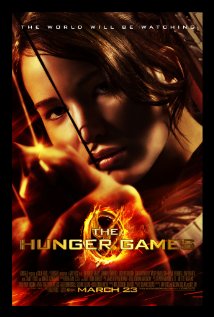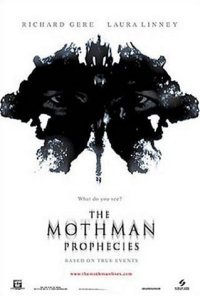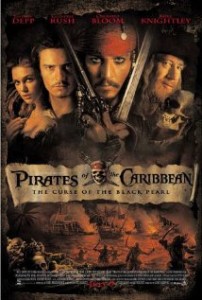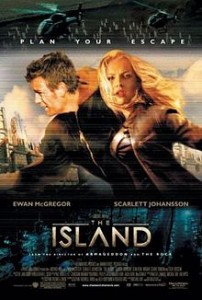You may have liked or disliked The Hunger Games, but nobody can dispute that the movie did well in the theaters. Why does it matter? Because we want our stories to sell well, to a wide audience.
Now, you can study the book, look at the plot points, try to understand what made it compelling to readers, but a well-received movie can do almost the same thing in a much shorter amount of time. I didn’t actually watch movies all that much until I went to a David Farland workshop where he sat with us and pointed out the story elements of Hunger Games and why they work for an audience.
Now, before I get into some of those details, a caveat: I am very good at turning off my internal editor when I watch a movie, and as such, I may be the worst person for this post. But because learning to analyze movies in this way has helped me, I felt the need to pass the information along. Some of what you’ll read came from David Farland’s workshop, and some of it is my own opinion. Doesn’t matter. You’ll get the idea.
Inciting Incident: On the Scribe Meets World blog, this is described as, “the event which sparks the fuse of your plot.” I argue that the fuse is lit in the very first scene, when Prim wakes up screaming because she dreamed she was chosen in the Reaping lottery for the Hunger Games. This is where Katniss makes her promise to Prim. “Your name’s only in there once. They’re not going to pick you.” Up until this point, Katniss has cared for her family, but the change, the initial incident, is the fact that Prim is in the lottery for the first year ever.
Takeaway: What good storytellers know, you don’t want to wait too long for this inciting incident to take place, within the first ten minutes for a movie. I’ve heard different numbers for books, but as in The Hunger Games, as soon as possible works best for most audiences.
Turning Point (s)/Try-Fail Cycles: We often think only of the main turning points and climax, but one of the aspects of Hunger Games that I thought was done exceptionally well, was weaving the multiple story lines: Katniss’ need of being there for Prim, her desire to be left alone by the government, Gale’s wish that he could lash out at government control, Peeta wanting Katniss to live, for her to care for him, and that he can come away from the whole ordeal unchanged. (You’ll notice we never see him kill anybody, though eventually Katniss does.) Even Cato’s story, as he goes from confident contestant, to charismatic leader, to a broken, bitter boy, is given to us in poignant flashes. “One more kill. It’s the only thing I know how to do…to bring pride to my district. Not that it matters.” (Cato’s last scene)
Much of what kept the audience engaged was the almost continual spike of these multiple stories hitting their own turning points, even to the relationship between the President and the game-maker, shown to us in brief, increasingly-threatening, scenes.
Takeaway: As in movies, writers need to make every scene count; consider every character, their goals, and how those goals fit in with the main story and then weave those elements into alternating peaks of tension so the reader is continually engaged.
Escalate: This brings us to the next point. To fully engage an audience, the conflicts have to escalate throughout the story. As if Katniss’ situation isn’t bad enough, we discover the game controllers are willing to interfere–through mechanical observation, acts of nature, and then manufactured beasts. As they arrive in the city, it seems that Peeta is at an advantage.
Haymitch: “You really want to know how to stay alive? You get people to like you….And right now, sweetheart, you’re not off to a real good start.”
But the paradigm shifts and Katniss becomes the favorite even as we realize Peeta is in love with her. Shortly after she receives the high score from the judges, Peeta reveals his feelings to the world and she accuses him of making her appear weak.
Haymitch: “He made you look desirable, which in your case, can’t hurt, sweetheart.”
Throughout the movie, every success brings another problem, escalating the conflicts. Katniss gets a backpack of supplies, only to get targeted by her personal nemesis–Clove, the knife-thrower. Winning a bow requires her first act of violence and leaves her hallucinating and vulnerable. The list goes on, and every moment of the movie is turning points and escalations of conflict.
Takeaway: As Brandon Sanderson says, “Escalate, escalate, escalate.”
Resonance: I don’t think I would have caught on to the following examples without David Farland’s workshop. I understood genre resonance, but didn’t get visual resonance until then. He pointed out things like the heart shape on Effie’s lips and visual similarities between her and the Queen of Hearts, giving us an automatic dislike of the woman. The enforcers visual similarity to Star Wars storm troopers gives us that automatic sense of oppression and the presence of a domineering empire. District 12 is Depression-era bordertown, lending the feel of starvation and desperation. Even Katniss’ clean-up in the city increases the Oz feel already rendered by the citizens’ outlandish dress. I have too many of these to list, and we’ve already had a post on resonance, but I never realized before how Hollywood uses visual references between iconic films to influence our perceptions.
Takeaway: As was said by Nancy in her Star Trek post, resonance matters. Finding ways we can make small details, genre language, and even outside references, familiar and yet new and interesting gives flavor to our stories as much as it lends flavor to a film.
Hunger Games takeaway: Taking the time to dissect popular movies and finding the elements of plot structure and resonance that make it work for the audience is a valuable tool in improving our own work.




